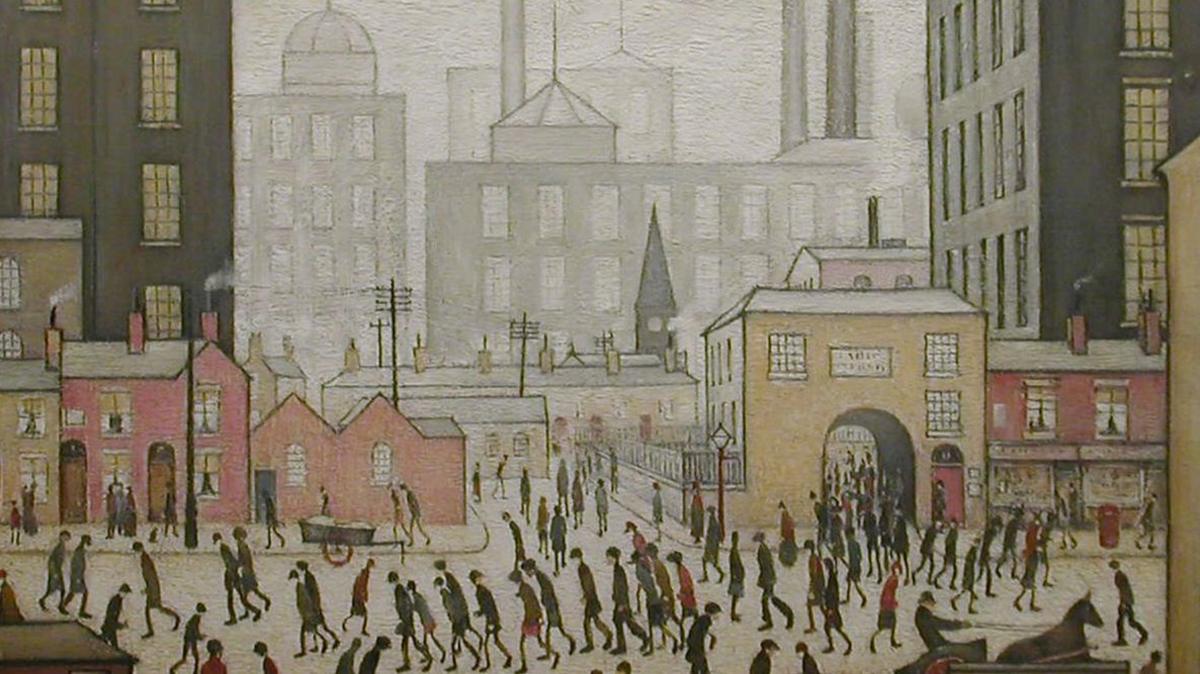'We live in LS Lowry's house... he might not approve of the colour scheme'
- Published
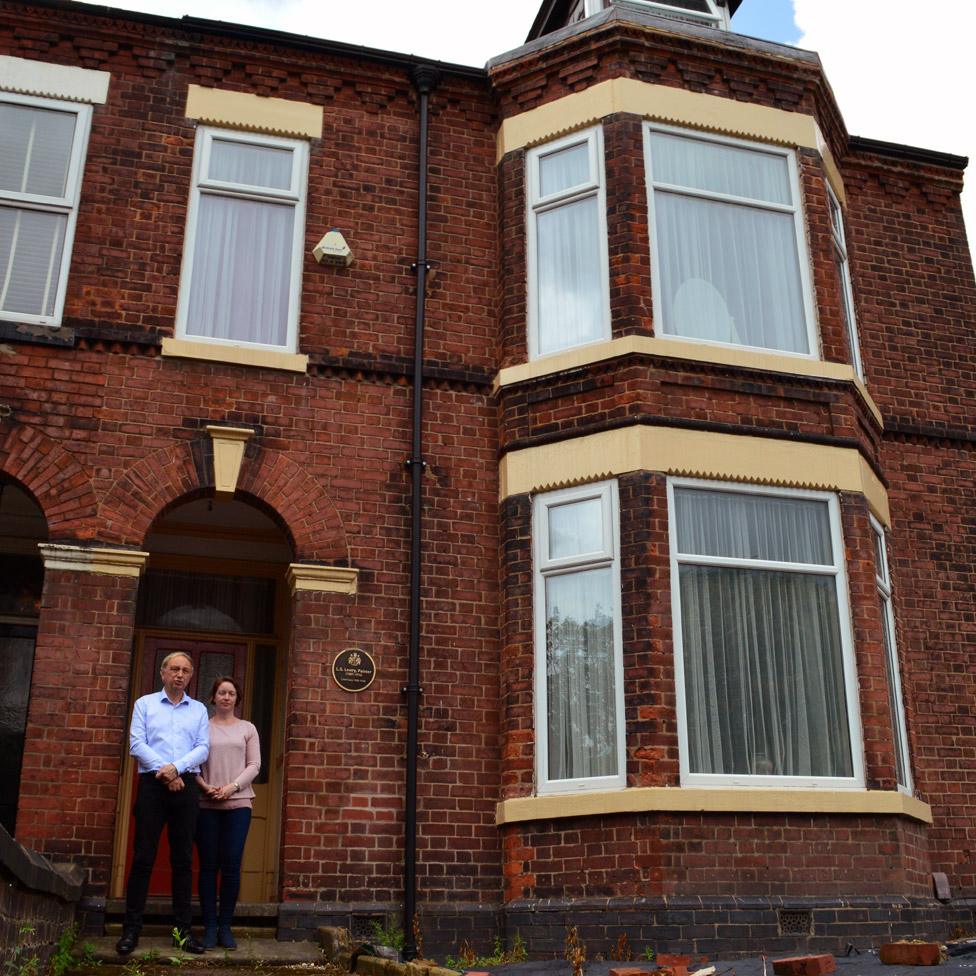
Steve and Abigail Johnson are deciding whether to make the new plaque permanent
The Salford house where LS Lowry painted many of his famous works has been recreated for a film about the artist's life, starring Timothy Spall and Vanessa Redgrave.
But what's it like to live in the original?
Lots of the Lowry fans who make the pilgrimage to Station Road in Pendlebury, Greater Manchester, to find the house where one of Britain's most popular artists lived and worked are unsure whether they have found the right place.
"Because the plaque isn't there, people are not sure which house it is," says Abigail Johnson, who lives in Lowry's old home with her husband Steve and their four children.
"We see them stood outside, and sometimes we let them in to have a look around," Steve adds.
There was a plaque on the wall. But "one of the locals pinched it", Steve explains. "I believe he's got it in his bedroom, this particular fella. What use it is in his bedroom, I don't know."
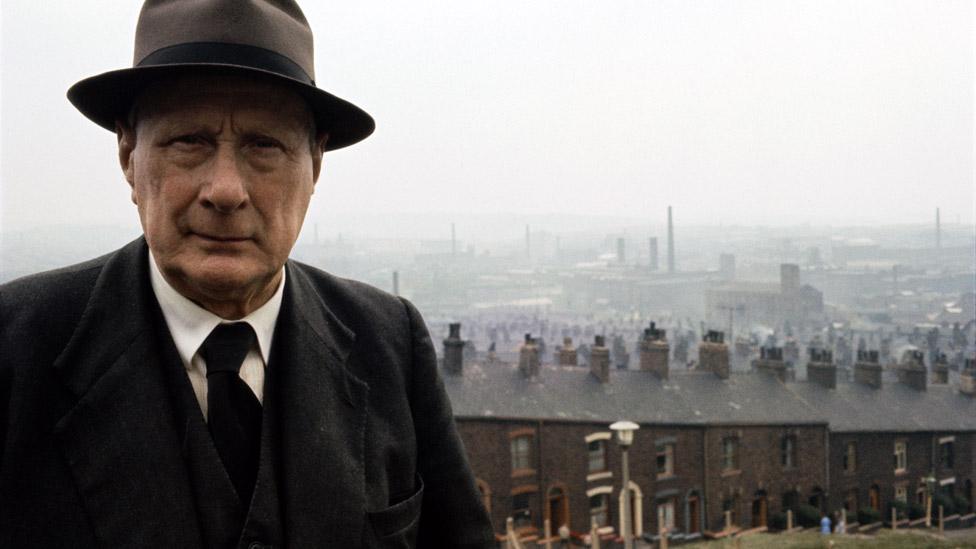
LS Lowry in Pendlebury in 1964
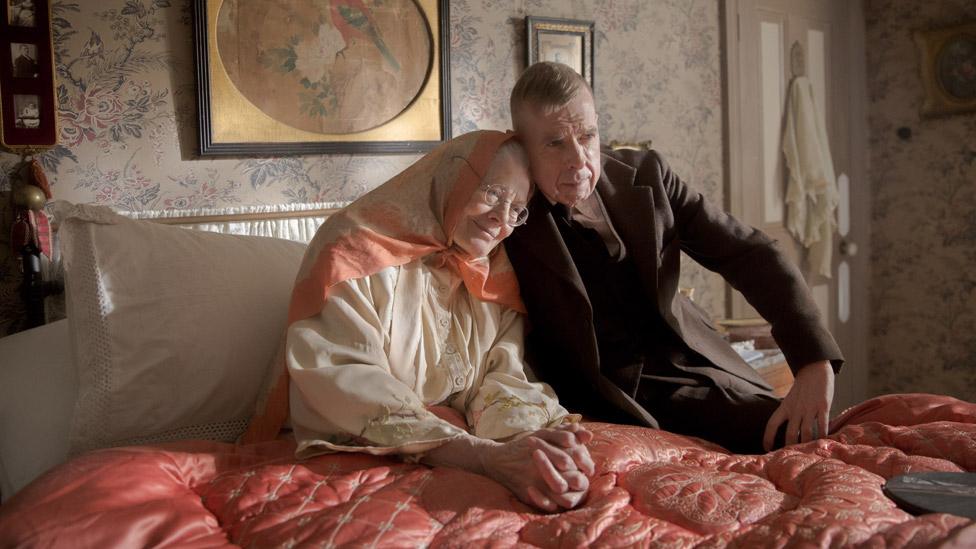
Vanessa Redgrave and Timothy Spall in Mrs Lowry & Son
The Johnson family may well notice more people lingering uncertainly outside their front door after the release of Mrs Lowry and Son on Friday.
The house plays a starring role in the film, which depicts the artist's claustrophobic relationship with his bedridden, unsupportive mother.
Elizabeth Lowry, played by Oscar-winner Redgrave, is unhappy at being forced to move to a working-class suburb because of her husband's debts.
A line in the film, when she mistakes her son for a burglar, will ring true with the current residents, given the plaque theft. "Anything's possible living in Pendlebury," the character says. "People get up to all sorts of malpractices as soon as your back is turned."
But whereas Mrs Lowry sees the worst in the area, her son saw a beauty in the industrial landscape.
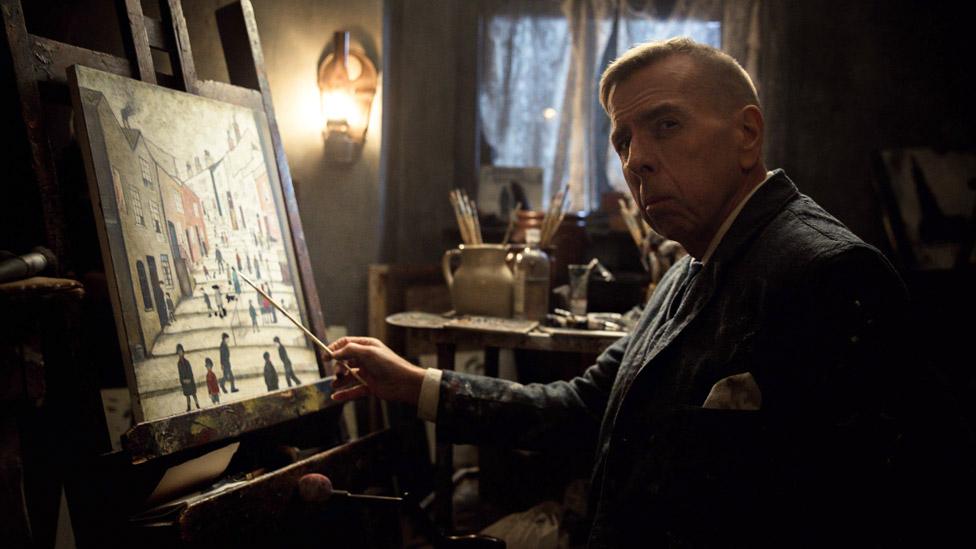
Timothy Spall as LS Lowry in his attic studio...
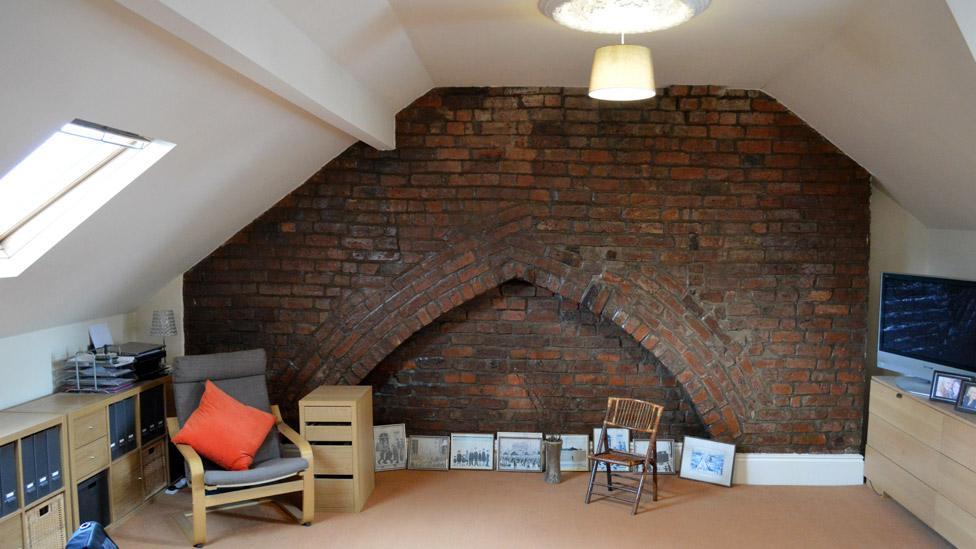
And the real attic as it is now
The artist and his mother moved into the house in 1908, when Lowry was in his early 20s. She died in 1939, just as her son was starting to gain recognition for the now-famous scenes of busy mills and markets that he painted late at night in their attic.
"One of the things that struck me was the fact that he did all his paintings in the loft room. It is a big room but the lighting must have been rubbish," Mrs Johnson says. "Even if he was to do it in the daylight, all that he would have had is the dormer window."
The addition of a modern velux window has turned the attic into the couple's bright bedroom. In the film, Mrs Lowry disappointedly describes the house as a humble "two up, two down", but that's not quite the case. It is in fact a six-bed end of terrace.
"They talk about this tiny little terraced house that Lowry lived in for 40 years, but it's not quite so tiny," Mrs Johnson says.
There was talk of Salford City Council turning it into some sort of museum when it came on the market in 2014, but that didn't happen.
Instead, the Johnson family bought it - partly because of the Lowry connection, but mainly because its size suited their family, and it's down the road from the Swinton Palais, a gem of a dancehall that Mr Johnson runs.
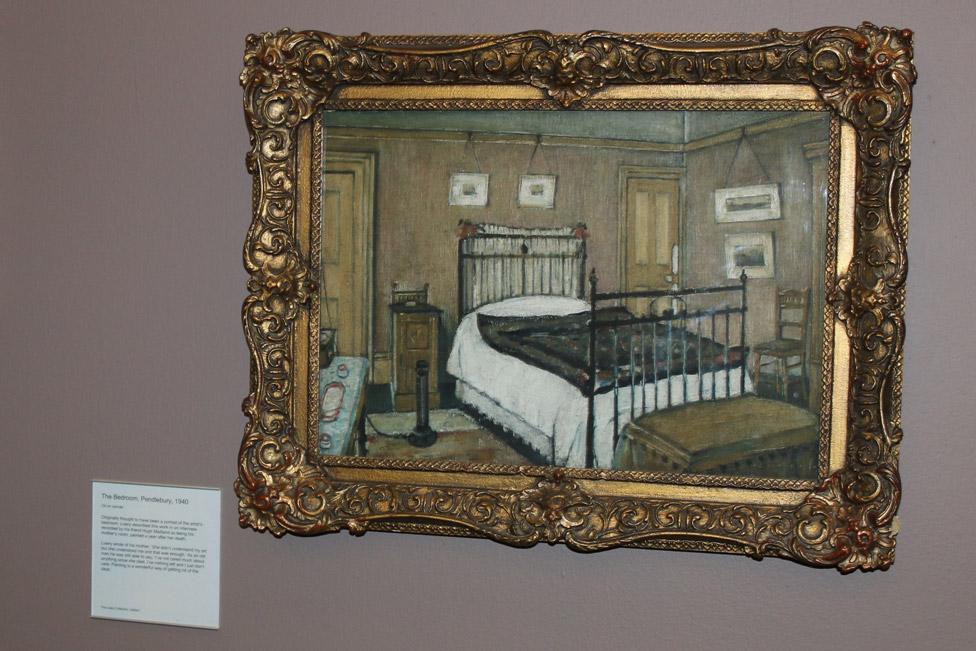
The Bedroom, Pendlebury, 1940, is on show at The Lowry arts centre in Salford
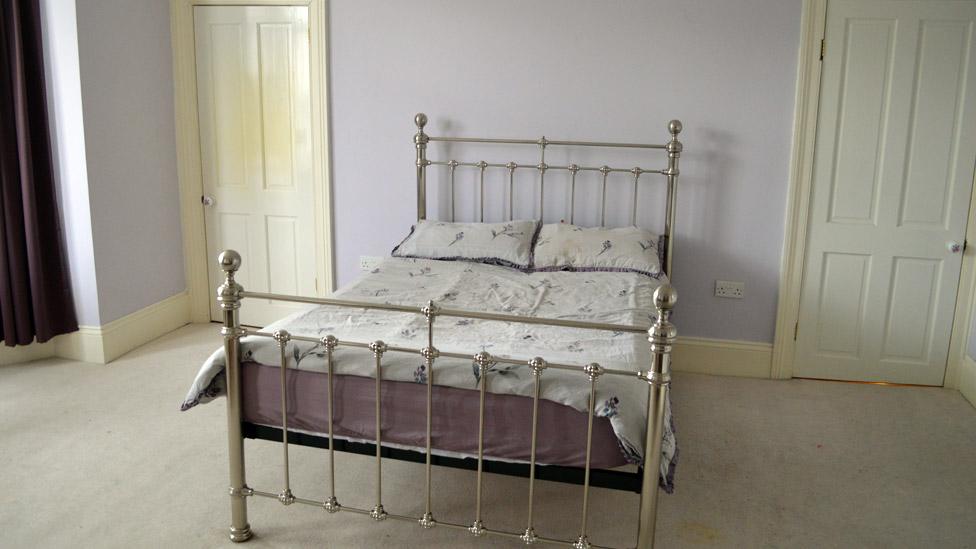
And Mrs Lowry's old bedroom as it is now
Was there any trace of the artist left when they moved in? "His walking stick was here," Mr Johnson says. No sketches under the wallpaper? "No, nothing. It's been knocked about too much."
Some of the original features - like doors, skirting boards and coving - are still there. "He might not approve of the colour scheme," Mrs Johnson says.
Much of the film takes place in Mrs Lowry's bedroom, which is now occupied by the Johnsons' teenage daughter. Her metal bedstead is eerily similar to Mrs Lowry's, which is depicted in a painting LS Lowry completed a year after his mother's death.
Mrs Johnson says her daughter unwittingly chose a replica: "I didn't say anything, and later when she chose it and she'd assembled it, I showed her the painting of the original and she went, 'Ooh! How spooky is that!'"

Left-right: Writer Martyn Hesford with Spall and director Adrian Noble at the film's premiere at The Lowry
The film's writer Martyn Hesford grew up around the corner from the house. The artist had moved out by that time, but he remained a local legend.
"When I was 10 or 12, I would often stand outside the house and look up into the attic and think, all those paintings came from there," Hesford says. "And I imagined the conversations he might have had with his mother."
Hesford's mother worked in the factory over the road from the Lowrys' house, but it was his aunt who introduced him to Lowry's work at an exhibition in Salford.
"My auntie Brenda took me to Peel Park to see the paintings when I was about six, and that was my introduction to art for the first time, which opened my eyes. And suddenly Salford wasn't just cobbled streets with pigeons. Weeds became coloured flowers, and chimney towers became dragons' breath."
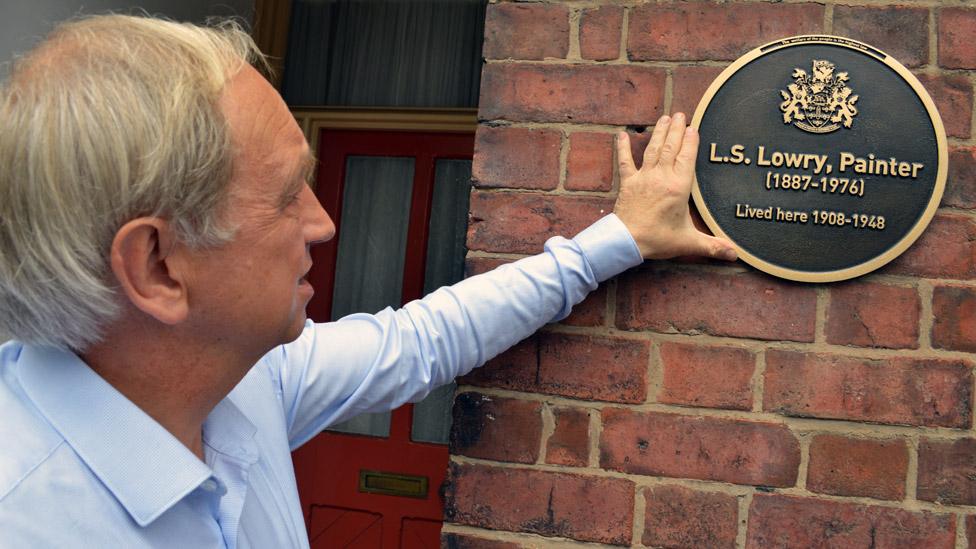
Steve Johnson hopes to put up the plaque and erect a statue in the garden
In May, Steve and Abigail Johnson launched a crowdfunding campaign to place a statue of LS Lowry at the front of their house and create a memorial garden. They are hoping the film, which had its premiere at The Lowry arts centre in Salford on Tuesday, will spur interest in the plan.
They have also had a new plaque made. "We've not put it up yet because we were thinking, would it be safe?" Mr Johnson says. "Do we need [security] cameras up there? And we're thinking about doing the front garden and everything. So we're going to do it all together.
"It does deem a shame there's no recognition of him in the place where he did everything."

Follow us on Facebook, external, on Twitter @BBCNewsEnts, external. If you have a story suggestion email entertainment.news@bbc.co.uk, external.
- Published24 June 2013
